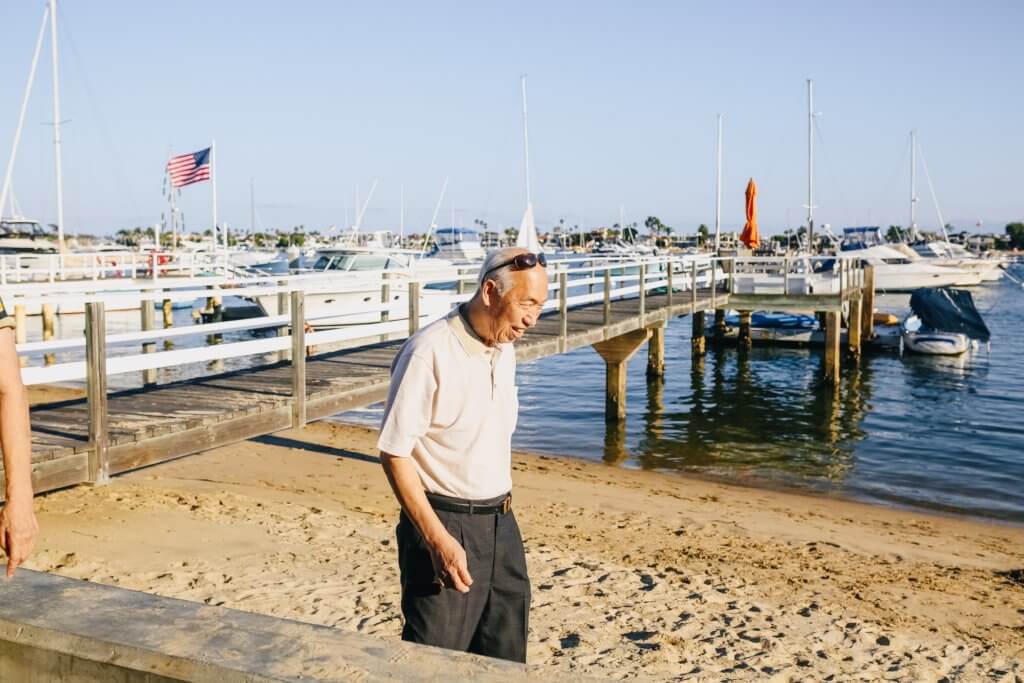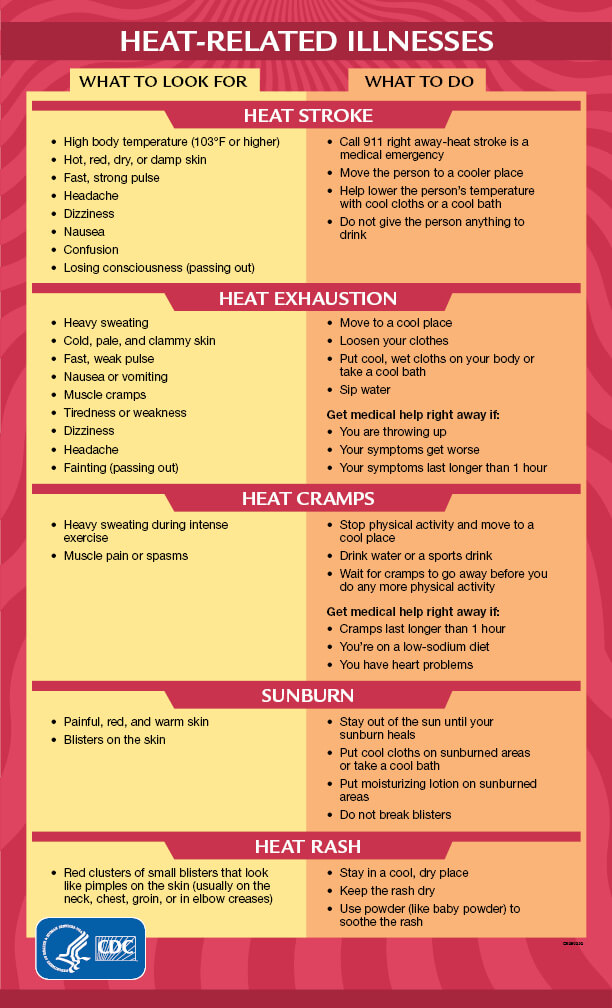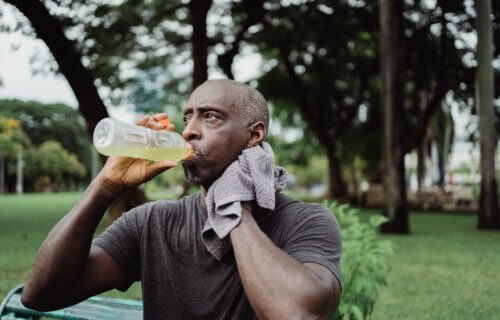Every year, about 618 people in the United States die due to complications from extreme heat. Extreme heat means summertime temperatures that are much hotter and/or much more humid than normal. Various locations have different average temperatures at particular times of year. There is no single temperature that is safe or unsafe. Humidity can make the weather seem even hotter.
Heat-related illnesses, like heat exhaustion or heat stroke, happen when the body is not able to properly cool itself. The body cools itself by sweating. During extreme heat, however, that might not be enough. In these cases, body temperature rises faster than it can cool itself down, potentially causing damage to the brain and other vital organs.
Who faces the highest risk?
According to the Centers for Disease Control and Prevention (CDC), older adults, the very young, and people with mental illness and chronic diseases are at highest risk for heat-related illnesses. However, even young and healthy people can be affected if they participate in strenuous physical activities during hot weather. People of low income, outdoor workers, athletes, and pregnant women are also more vulnerable.
Which factors can increase risk for heat-related illness?
Some additional factors which can increase risk for a heat-related illness include:
- High humidity
- Dehydration
- Fever
- Obesity
- Heart disease
- Poor circulation
- Some prescription drugs
- Sunburn
- Alcohol use

What can you do to protect yourself?
Wear Appropriate Clothing: Wear lightweight, loose-fitting clothing.
Stay Cool Indoors: Stay in air-conditioning as much as possible. For people without home air-conditioning, heading to a mall or public library can help your body stay cooler when you go back into the heat. Your local health department usually has information about local heat-relief shelters.
Electric fans may improve comfort, but as the air temperature approaches 100 degrees, they will not prevent heat-related illness. A cool shower or bath or air-conditioning is a more effective way to cool off. Avoid using your stove and oven.
Scheduling Outdoor Activities: Try to limit your outdoor activity to the morning and evening hours when it’s cooler. Rest often in shade.
Pace Yourself: Limit exercise during the heat. If exertion in the heat makes your heart pound and causes you to gasp for breath, STOP. Get into shade or a cool area to rest, especially if you get lightheaded, weak, or faint.
Use Sunscreen: Sunburn affects your body’s ability to cool down and can cause dehydration. Outdoors, wear a wide-brimmed hat, sunglasses, and use sunscreen of SPF 15 or greater 30 minutes prior to going out. Reapply it according to the directions. Use sunscreens that say “broad spectrum” or “UVA/UVB protection.”

Do Not Leave Children in Cars: Cars quickly heat up to dangerous temperatures, even with a window cracked open. While anyone left in a parked car is at risk, children are especially at risk for heat stroke or death. When traveling with children, remember to do the following:
- NEVER leave infants, children, or pets alone in a parked car.
- Keep a stuffed animal in the car seat. When the child is buckled in, place the stuffed animal in front with the driver, as a reminder of the child in back.
- When leaving your car, check to be sure everyone is out. Do not overlook children who have fallen asleep.
Avoid Hot and Heavy Meals: They add heat to your body.
Stay hydrated: Drink more fluids, even if you aren’t very active. Don’t wait until you’re thirsty to drink. Stay away from high-sugar or alcoholic drinks, which cause you to lose more body fluid.
- If your doctor limits the amount you drink or has you on water pills, ask how much you should drink while the weather is hot.
Replace Salt and Minerals: Heavy sweating causes loss of salt and minerals from the body. A sports drink can replace the salt and minerals.
- If you are on a low-salt diet, have diabetes, high blood pressure, or other chronic conditions, talk with your doctor before drinking a sports beverage or taking salt tablets.
Keep Your Pets Hydrated: Provide fresh water for your pets, in a shady area.
Use a Buddy System: When working in the heat, co-workers should monitor each other. Heat-induced illness can cause confusion or loss of consciousness. People who are 65 years of age or older should be called a couple times a day during a heat wave, to check on them.
Warning Signs and Symptoms of Heat-Related Illness
Heat-related illnesses are preventable. Learn the symptoms and what to do if you or a loved one shows signs of having a heat-related illness.


